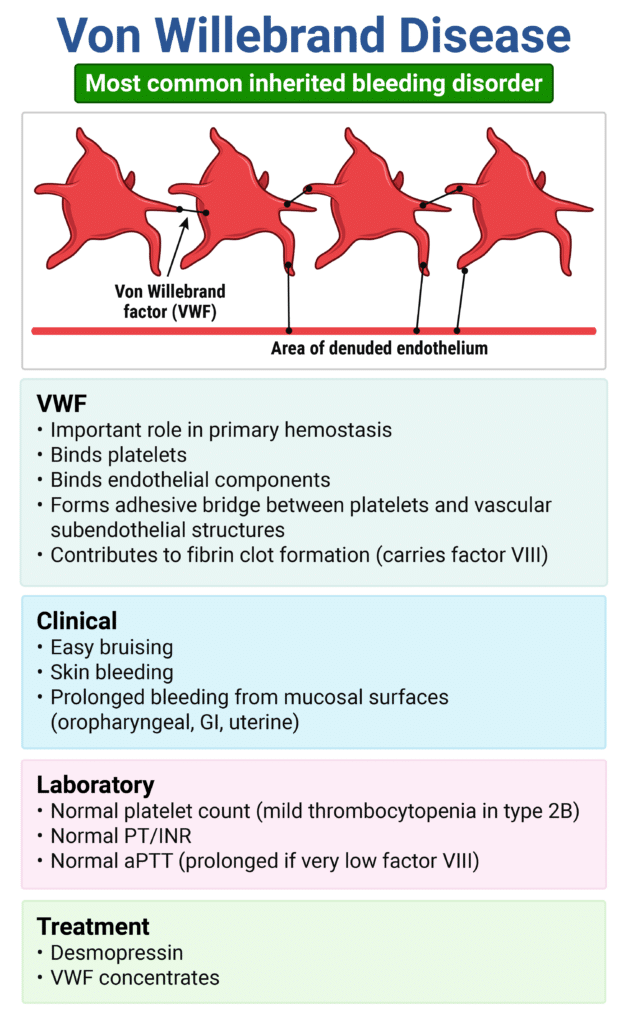Rapid Review: Von Willebrand Disease

Reviewed January 2024

Von Willebrand disease
- Most common inherited bleeding disorder in the US
- Three main types
- Type 1: deficiency of vWF (most common)
- Type 2: abnormal vWF (has several subtypes)
- Type 3: absence of vWF (rare, but most severe type)
- Sx: bleeding from minor cuts, gingival bleeding, epistaxis, heavy menstrual bleeding, postpartum hemorrhage, postprocedural bleeding
- Hemostasis test results: isolated prolonged PTT or all normal
- Dx: von Willebrand-ristocetin cofactor activity, vWF antigen, factor VIII activity
- Tx: desmopressin acetate, recombinant factor VIII, vWF complex infusion
Sample question:
A 27-year-old woman presents to the emergency department with vaginal bleeding. She states that the bleeding is sporadic throughout the month and her periods last up to 8–10 days. She is otherwise healthy and has no other concerns. She notes that her mother and sister have always had long periods as well. Physical exam is remarkable for mild vaginal bleeding and bleeding gums. The dermatologic exam is unremarkable. Which of the following is the best initial treatment for this patient?
Get Free Access and Join Thousands of Happy Learners
Categories: Adult-Gerontology Primary Care , Certified , Certified Emergency Nurse , Clinical Year , Didactic Year , Emergency Medicine , Emergency Nurse Practitioner , Family Medicine , Family Nurse Practitioner , Internal Medicine , OB/GYN , Pediatric Emergency Medicine , Pediatric Primary Care , Pediatrics , Rapid Review ,





Comments (0)